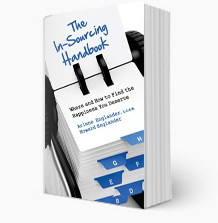I heard this harshly descriptive headline from a client. She told me it was what her father would say to her when she got caught up in second-guessing after a project didn’t meet her own high bar of success. He knew that she always tried her best, but would sometimes fall short of expectations and heap invective on herself.
“I should have done this, if only I had done that…” was her self-depreciative response when a project or relationship had a disappointing ending. Anything less than a perfect outcome she saw as failure.
It’s a common reaction. When we fall short, often we punish ourselves with blame and self recrimination, believing that we are “not good enough” and thus perpetuating negative self appraisal. We run the danger of singing a self-abasing “shouda, coulda, woulda” litany of doubt.
How do we leaven normal disappointment and stop “should-ing” ourselves?
A good place to start is to measure the perceived gap between objectives and actual results. Frequently we pass over the extent of our achievement, seeing only where we fell short when “look how much we accomplished” far outweighs the short fall.
It’s also important to distinguish between wishful estimates and what actually happened. Exploring alternative options that might have been taken is pragmatic and can lead to positive decisions, but ‘second guessing’ after the fact smacks of blame and harsh judgment rather than a learning process.
When you get caught up in “should-ing” you are focusing on the past, punishing yourself with unforgiving criticism that does not provide solutions to an actual problem.
Better to let go of emotions of the event, learn from the mistakes, and move on.

